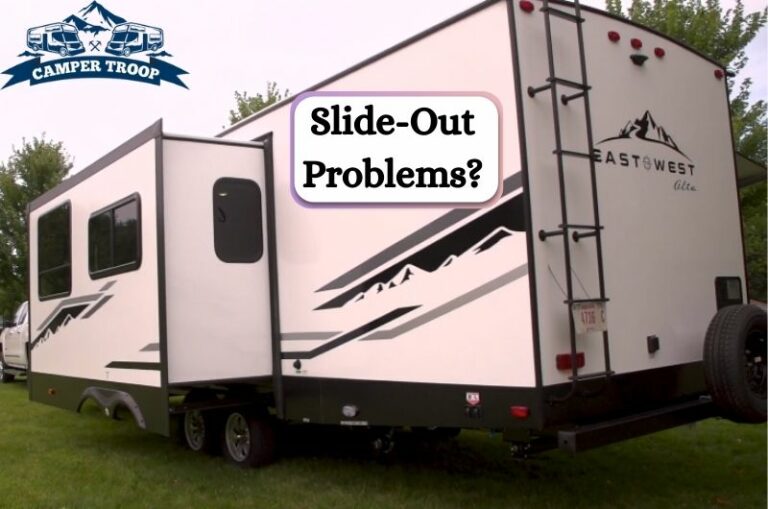RV Battery Draining While Plugged In: Know What to Do
When you are out with your RV and notice that your battery is draining even while plugged in, it can be quite frightening. Unfortunately, if you have been struggling with this issue, you need to find out the root cause and fix it.
There can be one or more reasons for the issue. In most cases, your RV battery draining while plugged in may occur due to poor maintenance, overcharging, oxidation, defective charging systems, or old batteries being at the core of the problem.
Let’s look more briefly into the problem so we can ensure that you are well-equipped to handle the condition in times of need!
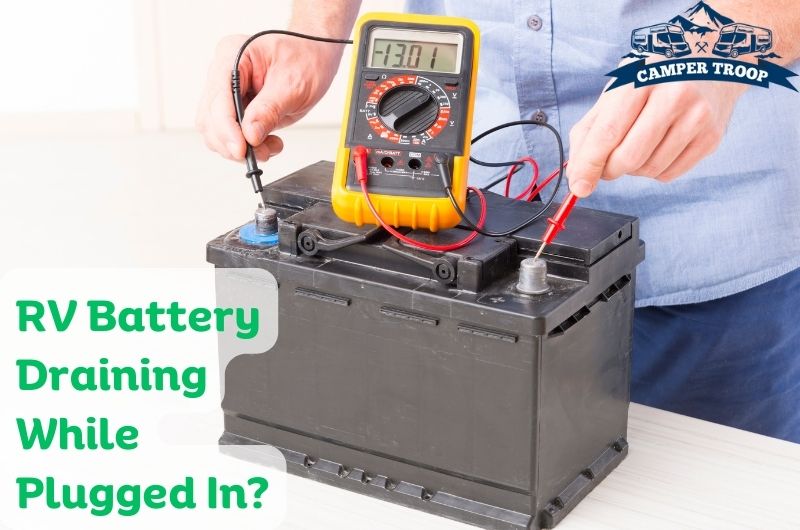
RV Battery Draining While Plugged In: 7 Common Reasons
It’s quite common to make a fuss with your battery even while you’re charging it. Anyway, As we have already mentioned some key reasons, here is a complete list of them.
- Poor battery maintenance
- Overcharging the battery
- Oxidation or corrosion on the battery posts
- Defective charging system or alternator
- Turned off RV’s master battery switch
- Issues with the converter
- The batter is too old to use anymore
Troubleshooting RV Battery Draining While Plugged In Problem:
Now that you know the common reasons behind the issue, it’s time to know what you can do to solve it. So, here are the solutions based on the reasons given above:
01: Ensure Proper Maintenance
Your RV’s battery requires your attention to remain healthy all the time. Thus, proper maintenance can keep it away from battery draining and other related issues. You need to charge the battery sufficiently from the very first day of purchase.
If you are keeping your RV unused, you still need to keep enough charge in the battery. The battery should be at least 12 volts when you are keeping it idle. Also, during heavy usage, ensure that you are adequately charging it every 1-2 hours.
To keep the battery’s health in check, you need to use specific distilled or de-ionized water for your battery.
02: Do Not Overcharge the Battery
If you leave your RV’s battery unattended while it is charging, it can quickly drain itself, even while plugged in. Thus, when your RV’s smart converter malfunctions, it can cause overcharging, leading to battery drain while plugged in. Otherwise, it can also occur due to a malfunctioning alternator.
Even when you leave the charger connected to the battery for too long, overcharging occurs. As a result, it can cause corrosion on the battery plates, causing issues like draining. Sometimes, you might even notice that your battery is overheating to the point that it’s melting.
So, check whether your battery is sufficiently charged or not every now and then. Afterward, you need to unplug the charger whenever the battery is fully charged to avoid this problem.
03: Check for Oxidation or Corrosion on the Battery Posts
Corrosion or oxidation on the battery posts can prevent your RV’s battery from sufficiently charging, or even draining while charging. This can happen for many reasons, including a lack of maintenance.
So you need to clean the terminals properly. Also, make sure to regulate the battery for proper maintenance.
To clean the area, you can wash it with any mild solution, or even spray it with a hose. Also, mixing baking soda and water to clean corroded or oxidized areas may work like magic.
04: Replace the Alternator
Sometimes, a defective alternator or charging system may cause your battery to drain while charging.
An RV battery quickly drains if the alternator in your charging system fails to provide adequate power. In this instance, the battery will keep depleting irrespective of the fact that it is still plugged in.
The best thing to do in this case is to change the alternator. If you think that you can repair it, this is not easy. As we have tried and failed, we suggest you do not waste your time repairing it when you can easily get a new one for cheap.
05: Turn On the Master Battery Switch
While your battery is connected to shore power, you must keep the master battery switch turned on. It helps to ensure that the charger is keeping the batteries charged. So, while plugging the battery in, first, turn on the master battery switch, and then you might not face battery drainage.
06: Check the Converter
A bad RV converter can cause your batteries to drain and not hold a charge. This might also show signs like flickering house lights. The battery drainage issue may also occur when your converter breaker is turned off.
If you suspect that the issue is due to the bad converter, you need to check it and replace it with a new one. You can look for indicator lights to know whether the converter is bad or not. Replacing the converter is the wisest decision if it has gone bad.
07: Time to Change the Battery
If none of the situations given above work, maybe the problem is due to your battery’s age. When you have used the RV’s battery for a long time, it will automatically lose its capacity and show signs, like battery drainage.
So, when you have found no solutions until now, the best bet is to change the battery and get a new one that supports your RV’s requirements.
Read Also: How to Get 12V Power From a Trailer Plug? (Multiple Methods)
Tips to Properly Maintain RV’s Lead-Acid Battery
You can’t use an RV’s battery for the rest of your life. But, you can’t let it go bad within 1-2 years either. Proper maintenance is the key to getting an increased lifespan from your RV’s battery. So, here are a few tips that you can follow:
- Don’t let the charge drop below 50% to prolong its life. Ensure adequate charging.
- Regular maintenance includes proper cleaning. So, keep the batteries clean, inspect for corrosion, and tighten the cable connections.
- While filling the battery, ensure that you are using the right kind of water.
- Use a battery that matches your energy consumption. Energy consumption beyond the battery’s capacity will ruin its durability.
- Leave battery vent lids on during charging to prevent water loss from bubbling and gassing.
- Parasitic loads in RVs can drain batteries. LP gas leak detectors, TV antenna power boosters, clocks, stereos, and appliance circuit boards are among these loads. When not in use or stored, turn off your RV’s battery disconnect switch.
How to Know That It’s Time to Replace Your Battery?
Typically, you will get around 5-7 years of durability from your RV’s battery. If your battery reaches 7 years old, it will automatically lose its function. Therefore, it’s wise to change your battery after 7 years.
Some signs that will tell you that your battery needs a replacement are:
- Slow charging
- Fast depleting
- A sudden drop in charge
- Draining even when you are not using it
- Corrosion inside the battery
- Dimmed headlights
FAQs
Now we will share some insights about your RV and its battery, so you steer clear of any confusion. Let’s begin!
Is it okay to leave your RV plugged in all the time?
Leaving your RV connected to shore power at a campground is generally safe. However, to keep the batteries in good condition, it is recommended that they be discharged and unplugged at regular inteRVals.
Can a bad RV converter drain the battery?
Yes, a faulty RV converter can potentially drain the battery. A malfunctioning converter might Overcharge or undercharge your battery, which can slowly drain it over time.
Does an RV converter charge the battery?
In order to run the RV’s appliances and charge the batteries, an RV converter must change the AC (alternating current) from the power supply into DC (direct current). The battery is constantly charged when the RV is plugged into shore power.
What kills a battery in an RV?
Several causes can kill an RV battery early. Some of them are complete battery discharge, overcharging, and not checking flooded-cell battery water levels, Exposure to too high or low temperatures might shorten battery life.
Final Words
So, now you know how to deal with your RV battery draining while plugged in. If you think that the problem is due to anything electrical, you might need professional assistance to solve it. You may have to replace the battery if you have used it for more than 7 years.

Zayan is an accomplished author and a go-to expert for all things RV and camper-related. With a passion for adventure and a knack for problem-solving, he has spent years exploring the open road and fine-tuning his knowledge of recreational vehicles.
Zayan’s writing is a testament to his expertise, offering readers practical solutions to common RV dilemmas. Whether it’s troubleshooting mechanical issues, optimizing space, or planning the perfect road trip, Zayan’s insightful advice and engaging storytelling make him an invaluable resource for both seasoned travelers and newcomers to the world of RVing.

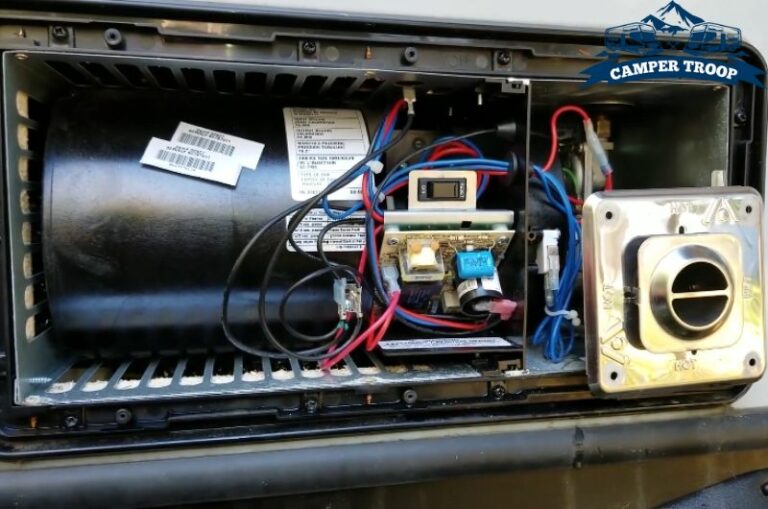
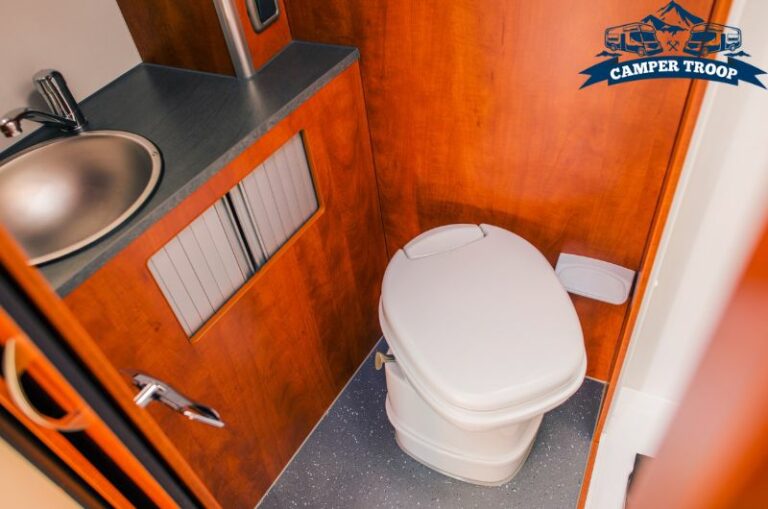
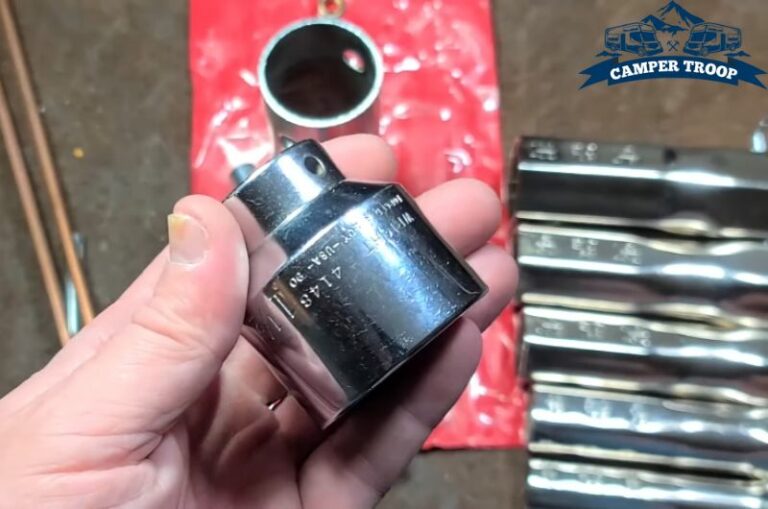
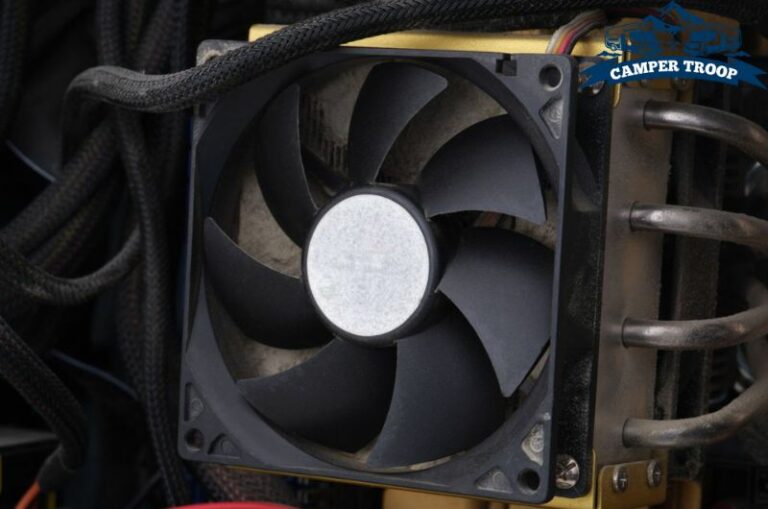
![4 Common Problems with Rockwood RV [Solutions Included]](https://campertroop.com/wp-content/uploads/2022/01/Rockwood-RV-Problems-768x509.jpg)
